The Role and Importance of Natural Sugar Substitutes
Unless you’ve been living alone on a mountain (where chances are that one is already eating very healthy) you’ve heard of the many popular sugar-free diets which usually go hand in hand with organic, natural and locally grown foods, or simply “a sugar-free lifestyle”. It’s not only a diet popular with people who like to keep their weight under control, or for people with diabetes and other illnesses, but for people who have sensitive tooth enamel and are now exploring additional dental care options. Caring for our bodies includes dental care, so it’s more than recommended to be mindful of what we consume each day.
Natural Sugar Substitutes: How Do You Cut Out Sugar From Your Diet?
Whether we like it or not, sugar is in almost all packaged groceries we buy from stores nowadays. Luckily, some conscious brands like to be transparent about their ingredients and cut down the sugar, or find a substitute for it.
If you’re interested in cutting back on sugars you may begin with using small amounts of honey, cinnamon, nutmeg, agave syrup until your taste buds adjust to less sweetness. Remember it’s all about creating better habits, so when you’re cooking at home and what you put in your body is completely under your control, there are some additional sugar substitutes I would like to explore with you today.
Xylitol
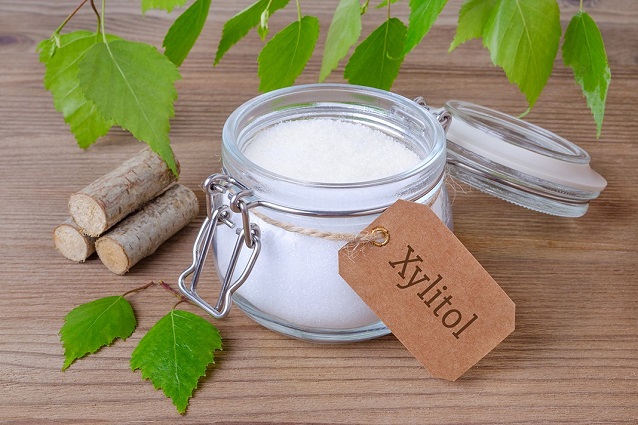
Xylitol is a naturally occurring alcohol found in most plant materials, including many fruits and vegetables. Naturally occurring xylitol is found in trace amounts in many fruits and vegetables, such as berries, apples, carrots, mushrooms and cauliflower but this amount is so insignificantly small that a process of extraction has been developed. Xylitol powder is extracted from birch wood and is widely used as a sweetener in “sugar-free” chewing gums, mints, and other candies.
Xylitol tastes sweet but, unlike sugar, isn’t converted in the mouth to acids that cause your tooth decay. That’s why the popularity of xylitol dental care products are on the rise today. Xylitol modifies the saliva in your mouth so that eating meals and desserts prepared with Xylitol not only do not cause cavities but prevents cavities by promoting the remineralisation of tooth enamel. The recommended dose for dental cavity prevention is 6-10 grams per day. Also, Xylitol contains 40% fewer calories than sugar and it has almost no effect on blood sugar levels for people who have diabetes.
Other than the benefit that you can use xylitol in a 1:1 ratio instead of sugar, it has no bitter aftertaste like some other sugar substitutes and can refresh your breath. Dentists have been recommending xylitol as a part of your oral health in multiple ways with using chewing gum, toothpaste, mouthwash, dental floss and oral rinses that have xylitol in them. Xylitol has anti-bacterial properties and will help to make mouth bacteria disappear and over time the pockets that you’ve developed in your gum line will heal and retrocede to their normal condition.
Stevia Leaf Extract
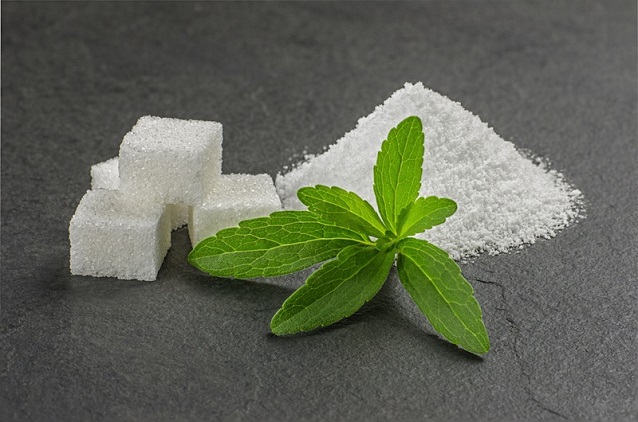
Stevia leaf extract comes from the stevia plant, which originates in South America. An interesting characteristic of stevia is that is way sweeter than sugar so using small amounts of it is sufficient and has zero calories. If baking, remember the sweetness that stevia provides so you really can’t use it to replace sugar at a 1:1 ratio. This sugar substitute is very popular with coffee shops because they can easily buy small packages in bulk which they can place with packages of regular sugar on each table. It’s advisable to make the switch from sugar to Stevia slowly.
Erythritol
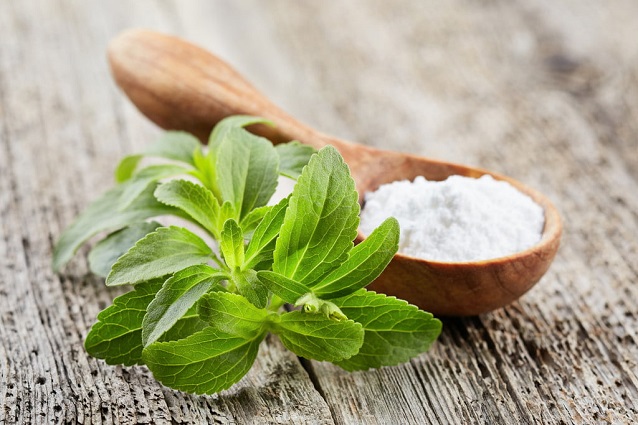
Erythritol is a chemical compound, sugar alcohol, used as a food additive and sugar substitute. It occurs naturally in some fruit and fermented foods. Erythritol is not fermented by oral bacteria and therefore it doesn’t contribute to acid production that leads to tooth decay. You can use erythritol the same way as sugar although you will experience a slightly different taste and a different consistency than what you’re used to. Despite its carb label, erythritol is not absorbed by the body and will not contribute to weight gain. This food additive is not recommended in large amounts and it can lead to dehydration and diarrhoea, so make sure it’s no more than 1 gram for every kilogram of body weight daily.
Monk Fruit Sweetener
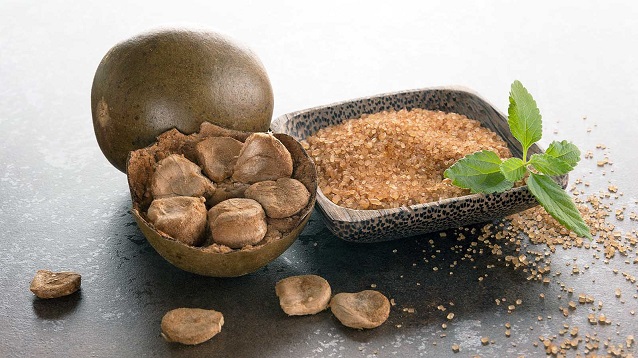
Monk fruit sweetener has been around for decades but has recently grown in popularity since it’s become more commercially available. The monk fruit (also known as “Buddha fruit”) is a small, round fruit grown in Southeast Asia. This fruit has been used for centuries in traditional Chinese medicine but became a popular sweetener alternative for manufacturers who make low-calorie products around the year 2010.
The Benefits of Chewing Sugar-Free Gums
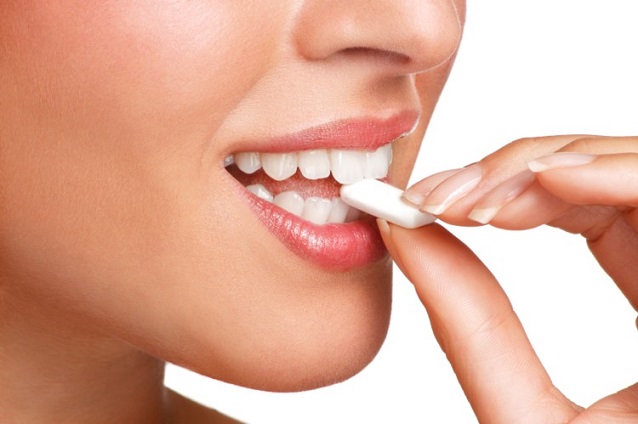
Brushing straight away after eating can cause particles of enamel to be brushed away, which after time can leave your teeth sensitive and weekend. But sometimes when you’re travelling or are out and about and don’t have your toothbrush, nor it’s practical to use in public, you can have your sugar-free chewing gums. Chewing sugar-free gum is a simple way of keeping your mouth busy and keeping your mind off of unhealthy snacks that can cause severe damage to your teeth (as severe as breaking them).
In addition, after you’ve eaten a meal, xylitol dental products such as chewing gums reduce the acid attack which follows after eating and help your teeth remineralise. Saliva is the defence against acid and chewing gums help produce it. So, always keep some around in your purse, in your car or at your desk, chew between meals and be always in control of your oral health even while you’re on the go.



